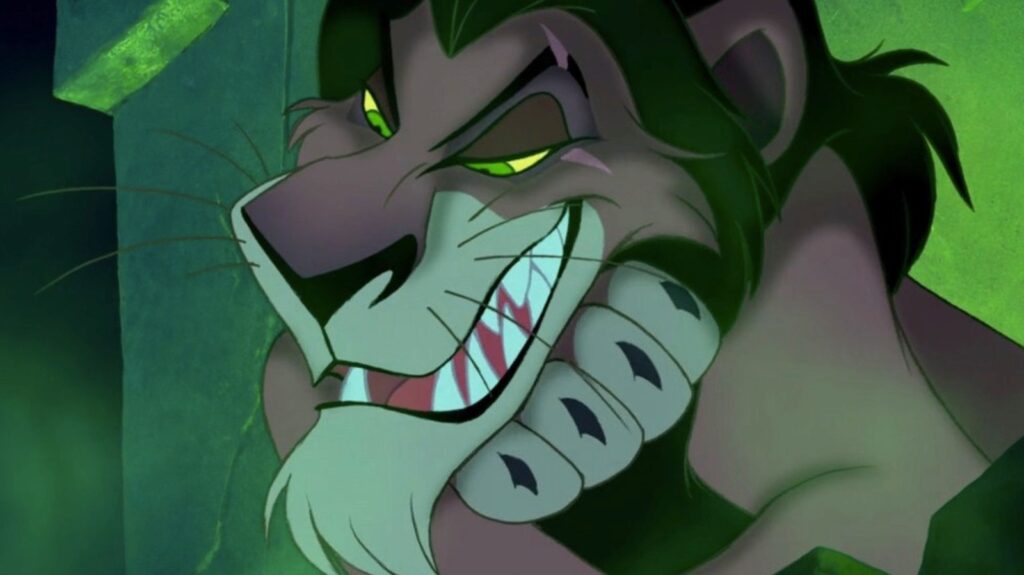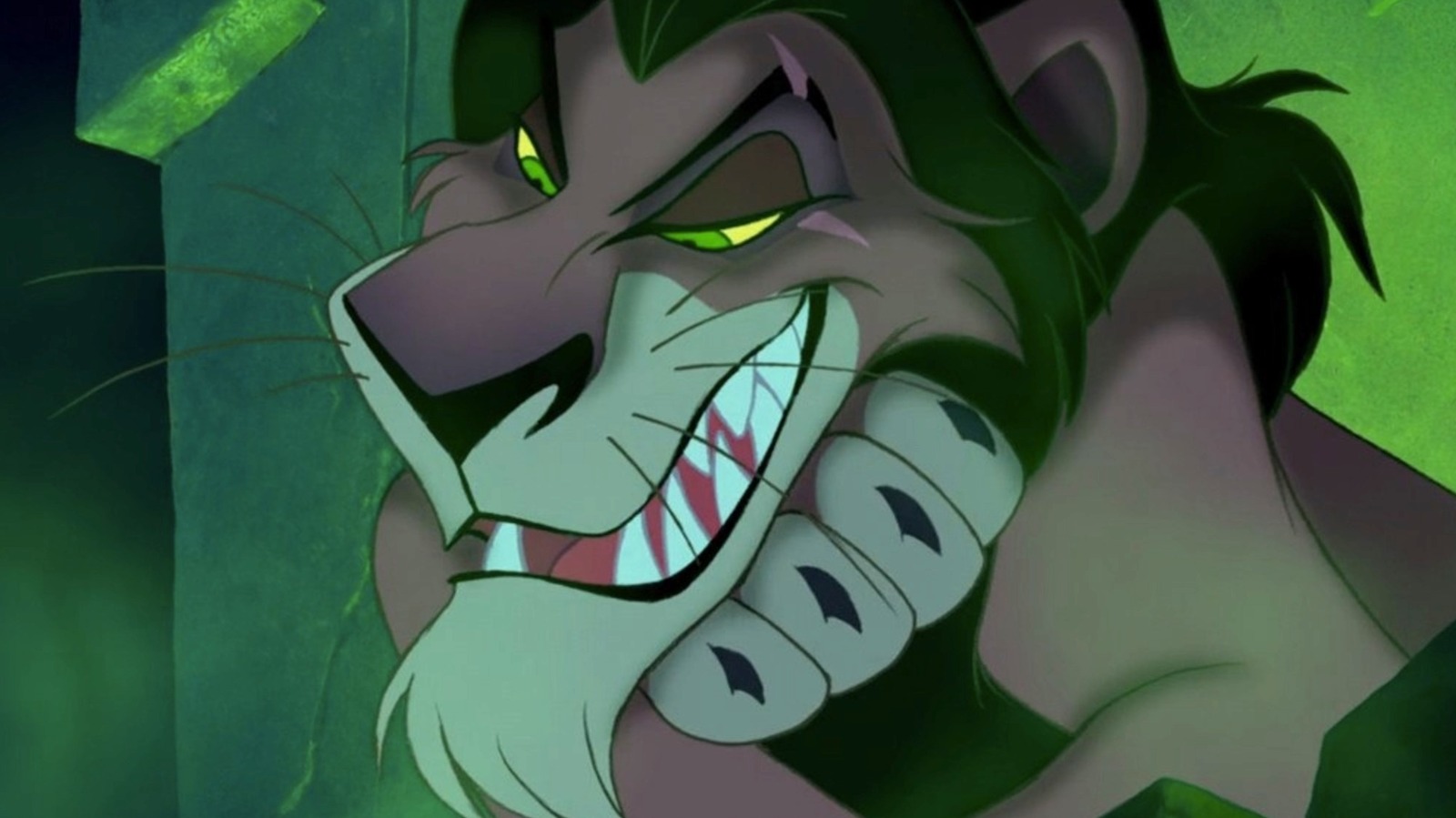
Why is Scar Evil? Unraveling the Villainy of The Lion King’s Antagonist
Scar, the treacherous uncle from Disney’s *The Lion King*, remains one of cinema’s most iconic villains. His green eyes, sinister smirk, and manipulative nature have captivated audiences for decades, but the question remains: why is Scar evil? Understanding Scar’s motivations and actions requires a deep dive into his character, his relationships, and the tragic consequences of his ambition. This article will explore the various facets of Scar’s villainy, analyzing the reasons behind his actions and examining the impact of his reign on the Pride Lands.
The Roots of Scar’s Malevolence: A Childhood of Neglect and Resentment
One common theory explaining why Scar is evil stems from his childhood. While never explicitly stated in the film, supplementary materials and fan theories suggest that Scar, originally named Taka, harbored deep-seated resentment towards his brother, Mufasa. Mufasa, the favored son and heir to the throne, received all the attention and praise, while Scar was often overlooked and neglected. This disparity likely fueled a sense of inferiority and jealousy, laying the foundation for his later actions. The constant comparison to his seemingly perfect brother fostered a burning desire to prove himself, even if it meant resorting to unethical means.
This feeling of inadequacy is a common theme in many villain origin stories. Scar’s perceived lack of worth likely contributed to his bitterness and ultimately, his willingness to betray his own family. He believed that the only way to achieve power and recognition was to eliminate Mufasa and seize the throne for himself. This deep-rooted resentment, coupled with a thirst for power, paints a complex picture of why Scar is evil.
Ambition and the Lust for Power: The Driving Force Behind Scar’s Treachery
Beyond childhood resentment, Scar’s insatiable ambition played a crucial role in his descent into villainy. He craved power and believed that he was more deserving of the throne than Mufasa. This ambition, unchecked by morality or empathy, drove him to orchestrate Mufasa’s death and usurp the throne. He was willing to sacrifice anything and anyone to achieve his goals, demonstrating a complete disregard for the well-being of the Pride Lands and its inhabitants.
Scar’s lust for power is evident in his manipulative tactics. He skillfully exploited the hyenas’ desperation and promised them a better life in exchange for their loyalty. He used their hunger and resentment to further his own agenda, showcasing his cunning and ruthlessness. This calculated manipulation highlights the extent of his evil and his willingness to exploit others for personal gain. Ultimately, his ambition became a destructive force, corrupting his judgment and leading him down a path of darkness. [See also: The Lion King: A Tale of Betrayal and Redemption]
Lack of Empathy and Moral Compass: The Absence of Good in Scar’s Heart
Another key factor explaining why Scar is evil is his apparent lack of empathy. He shows no remorse for his actions, even after causing immense suffering to his family and the Pride Lands. He seems incapable of understanding or caring about the feelings of others, viewing them as mere pawns in his game for power. This lack of empathy is a defining characteristic of many villains, and it is certainly prominent in Scar’s case.
His treatment of Simba after Mufasa’s death is a prime example of his lack of empathy. He manipulates Simba into believing that he is responsible for his father’s death, driving him away from the Pride Lands and effectively eliminating him as a threat to his reign. This act of cruelty demonstrates his complete disregard for the emotional well-being of his nephew and his willingness to inflict pain and suffering to achieve his objectives. The absence of a moral compass further solidifies his position as a truly evil character. This is also why Scar is evil.
The Consequences of Scar’s Reign: The Ruin of the Pride Lands
Scar’s reign as king of the Pride Lands is marked by devastation and despair. His mismanagement of resources and his alliance with the hyenas lead to widespread famine and ecological collapse. The once-thriving ecosystem becomes barren and desolate, reflecting the moral decay that has taken hold under Scar’s rule. The Pride Lands serve as a visual representation of the consequences of unchecked ambition and the destructive power of evil.
The suffering of the lionesses and other animals under Scar’s rule further emphasizes his villainy. He hoards resources for himself and his hyena allies, leaving the rest of the population to starve. His tyrannical rule creates an atmosphere of fear and oppression, where dissent is met with swift and brutal punishment. The desolate state of the Pride Lands serves as a constant reminder of the destructive impact of why Scar is evil and his actions.
Scar’s Relationship with the Hyenas: A Pact with the Shadow Side
Scar’s alliance with the hyenas is a crucial element in understanding his character and his motivations. The hyenas, marginalized and ostracized from the Pride Lands, represent the shadow side of the animal kingdom. Scar exploits their desperation and promises them a better life in exchange for their loyalty. This alliance allows him to gain the power he needs to overthrow Mufasa and seize the throne, but it also comes at a great cost.
The hyenas’ presence in the Pride Lands further contributes to the ecological devastation and the overall sense of chaos and disorder. They are undisciplined and destructive, and their presence disrupts the natural balance of the ecosystem. Scar’s willingness to align himself with such a force demonstrates his moral bankruptcy and his willingness to sacrifice the well-being of the Pride Lands for his own personal gain. This pact with the shadow side is a defining characteristic of why Scar is evil and his reign of terror.
The Lion King as a Morality Tale: The Importance of Good Over Evil
*The Lion King* is ultimately a morality tale that explores the conflict between good and evil. Scar represents the destructive forces of ambition, resentment, and lack of empathy, while Mufasa and Simba embody the virtues of courage, compassion, and responsibility. The film demonstrates the devastating consequences of succumbing to evil and the importance of upholding moral principles.
Scar’s downfall serves as a cautionary tale, highlighting the ultimate futility of evil. His reign of terror is eventually brought to an end by Simba, who returns to reclaim his rightful place as king and restore balance to the Pride Lands. The triumph of good over evil underscores the importance of moral integrity and the enduring power of hope. Understanding why Scar is evil allows us to appreciate the film’s message and its enduring relevance. [See also: Simba’s Journey: From Exile to King]
Is Scar Purely Evil? Exploring Shades of Gray
While Scar is undoubtedly a villain, it’s worth considering whether he is purely evil or if there are shades of gray in his character. Some argue that his childhood neglect and his perceived lack of worth contributed to his actions, making him a more complex and sympathetic character. However, his willingness to commit murder, manipulate others, and inflict suffering on the Pride Lands ultimately outweighs any potential mitigating factors.
While understanding the potential roots of his villainy can add depth to his character, it does not excuse his actions. He ultimately made a conscious choice to embrace evil and pursue his ambitions at any cost. The consequences of his actions were devastating, and he bears full responsibility for the suffering he caused. Therefore, while acknowledging the potential for complexity, it is ultimately accurate to characterize Scar as a fundamentally evil character. He embodies the negative traits that we fear and despise, making him a compelling and unforgettable villain. This examination of why Scar is evil helps solidify his place in cinematic history.
Conclusion: The Enduring Legacy of a Complex Villain
In conclusion, understanding why Scar is evil requires examining a confluence of factors, including his childhood resentment, his insatiable ambition, his lack of empathy, and his alliance with the hyenas. His actions had devastating consequences for the Pride Lands, and his downfall serves as a cautionary tale about the dangers of unchecked ambition and the importance of moral integrity. While some may argue for shades of gray in his character, his ultimately evil actions solidify his place as one of Disney’s most memorable and compelling villains. His legacy serves as a reminder of the importance of choosing good over evil and the enduring power of hope in the face of darkness.
His cunning, manipulative nature, and unwavering pursuit of power make him a fascinating character to analyze. He represents the dark side of human nature, and his story serves as a reminder of the importance of resisting temptation and upholding moral principles. The question of why Scar is evil continues to resonate with audiences, ensuring his place in cinematic history for generations to come.

